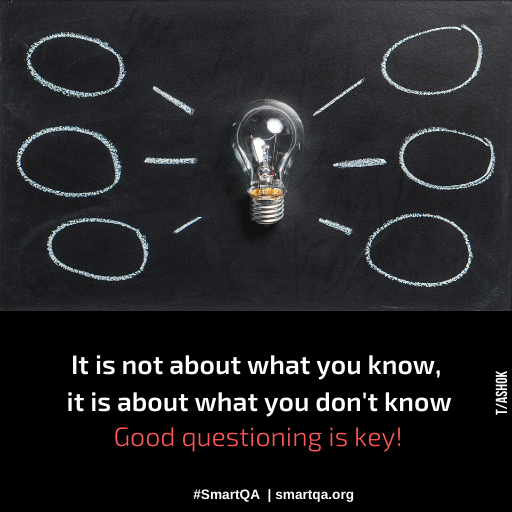SmartQA Digest
In this edition of SmartBites Video, Girish Elchuri, Founder & CEO of Smuuth Innovative Solutions shares what it to takes to “Build with Quality” rather than ‘test-out’ quality, He shares his perspectives on design, code, process, organisational attitude and the need to execute every line of code as part of early test.
In ‘beEnriched’ section the article What does it take to Build In Quality? outlines set of brilliant ideas curated from four articles on with the first suggesting ten ways to build high quality into software, second one from Scaled Agile framework outlining the clear definition of Done, the third highlighting how lean thinking and management helps, and the last outlining how Poka-Yoke can help in mistake proofing.
Enjoy the poster “It is not about finding bugs, it is about being sensitive
how they can creep in that matters.”
In ‘nanoLearning’, Raja Nagendra Kumar outlines four key “Habits to Clean Coding”: ‘Understand that DONE MOVES'(1), ‘There will be bugs, and for heaven’s sake, LEARN and ADJUST’ (2), ‘It is not just about functionality, constantly focus on NFRs’ (3) and ‘Continually re-factor right so that you don’t get into ‘fire’.(4)
beEnriched

What does it take to Build In Quality?
October 11, 2019
This article is a set of brilliant ideas curated from four articles with the first suggesting ten ways to build high quality into software,
expandMind

Approximate thinking
September 20, 2019
A beautiful book that taught me “Approximate thinking” of how to rapidly approximate and get facts to analyse further.

